BY CINDY GERLACH
PHOTOS BY CHRISTINE PETKOV
Not-for-profit organizations were designed to fill a niche between services offered by the government and the private sector. Their not-for-profit status allows any proceeds to be funneled back into the organization to help in fulfilling the mission, rather than be shared with investors or other stakeholders. Hence running a not-for-profit requires a special set of skills, as executive directors are tasked with running programs and staffing, as well as with development, fundraising and donor relations, all working under the guidance of a volunteer board of directors.
Several of these organizations in Tippecanoe County are run by women. Here is a look at just a few of the women who are at the helm of local not-for-profit agencies.
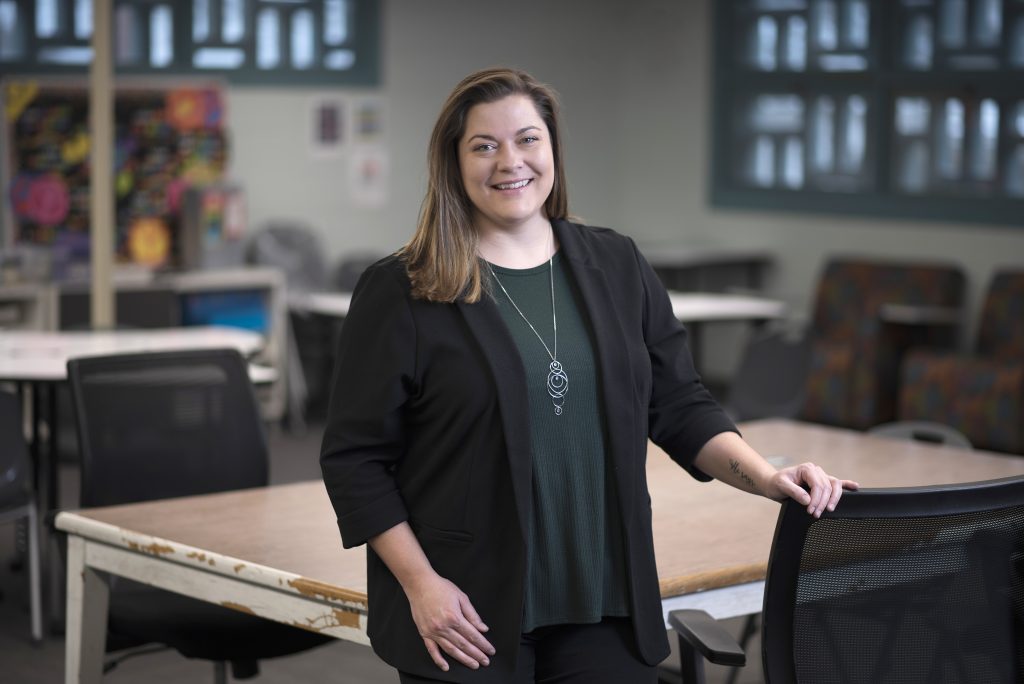
Tristen Comegys
Chief Executive Officer
Bauer Family Resources
Comegys developed a strong devotion to the nonprofit sector — and specifically youth serving organizations — early in her life, having benefited from youth development programming. Today her adopted daughter, Harley, has grown through her participation in similar programming. Her personal experiences led her to serve Bauer, an organization that empowers children and their families to thrive. She is a graduate of Purdue University with a B.A. in communications with a focus in advertising.
How did you become involved with this organization?
I originally became involved in the organization when I was serving as the CEO of a neighboring organization. We worked alongside Bauer in the community. When the previous CEO was set to retire, I was recruited to the organization.
What are your top three priorities?
• Enhance program delivery and accessibility: Embrace opportunities and create systems that allow for programs to replicate, expand, operate and innovate as dictated by the needs of the families and communities we serve.
• Amplify organizational impact: Communicate the difference that we are making, how we made that difference and why it is important in a way that elevates the organization.
• Proactively develop and strengthen our workforce: Become a sought-after employment destination with a culture that retains employees.
What change do you hope to effect during your tenure?
Bauer is one of the best-kept secrets in the community; often the work we do is in the background. With my team, I want Bauer, and the impact we make throughout the community, to be more apparent. We serve thousands of people every single year and have deep connections with families. We need to highlight that work to increase the number of families we are able to reach.
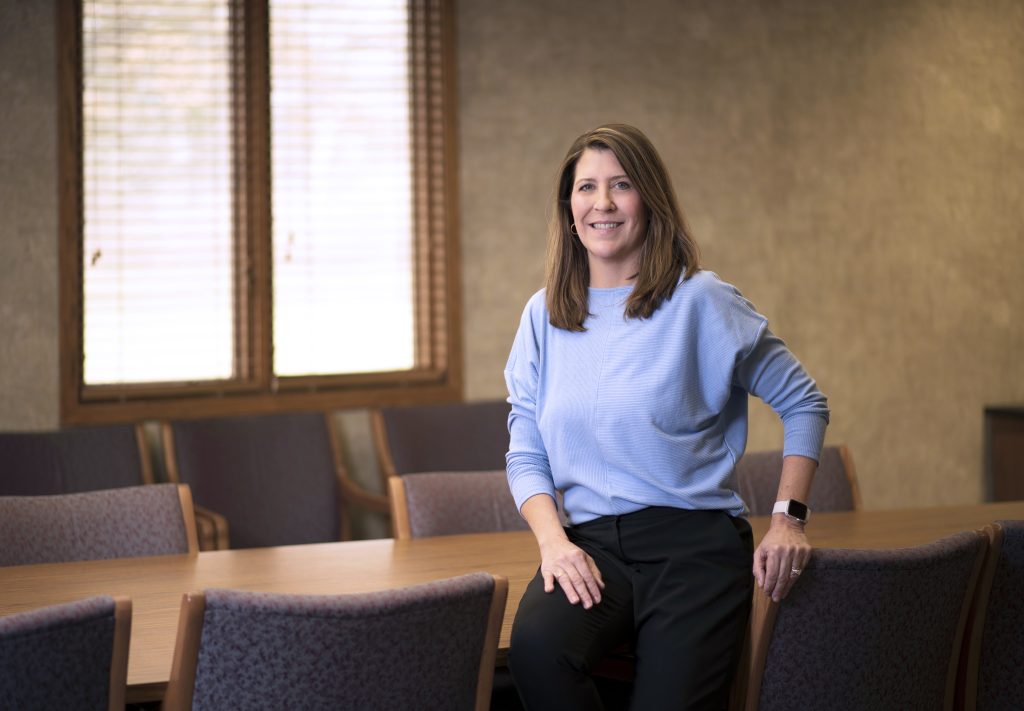
Christine Isbell
Executive Director
Public Schools Foundation of Tippecanoe County
Isbell is a graduate of Jefferson High School and Purdue University (1989, political science). She and her husband Dan have four adult children and five grandchildren. This is their 10th consecutive year with a child attending Purdue University.
How did you become involved with the organization?
My reintroduction to public education came when my first-born entered kindergarten in 1997 and I volunteered as “room mom.” As our other children entered school, my involvement increased with PTO leadership roles and special projects. When my youngest daughter entered preschool I decided to re-enter the work force and found a job listing in the newspaper for part-time director of PSFTC. In January 2023 I’ll begin my 21st year with the organization.
Our top three priorities are to:
• Provide resources that innovate classrooms and engage students in a tangible way.
• Create valuable classroom experiences for both students and teachers.
• Showcase the extraordinary effort and dedication that teachers, administrators and support staff exhibit in schools every day.
What changes do you hope to effect during your tenure?
I hope that during my tenure, rather than operate with a narrow focus, PSFTC will forge new partnerships with businesses and other philanthropic organizations to leverage resources and offer quality educational experiences to all students, and that we will continue to provide teachers with resources that provide varied instruction and materials to engage an audience with vastly different academic, economic and social backgrounds.

Tetia Lee
Chief Executive Officer
The Arts Federation
Lee has impacted the cultural landscape of Indiana for more than 25 years. She has degrees from the School of the Art Institute, American Academy of Art, Florence Academy of Art, Indiana State University and Texas Tech. She is a classically trained artist and a dedicated advocate for diversity, equity and inclusion.
How did you become involved with the organization?
A member of the search committee reached out to my former boss who encouraged me to apply. After he asked three times, I sent in my resume, and the rest is history.
What are your top three priorities?
• Increase the accessibility of the arts to all people and communities.
• Continue to build The Arts Federation’s reputation as one of the strongest and best arts organizations in the nation.
• Cement the importance and role of the arts in community and economic development.
What change do you hope to effect during your tenure?
Increase the diversity of the arts, artists and communities that are represented and celebrated in our present and future.
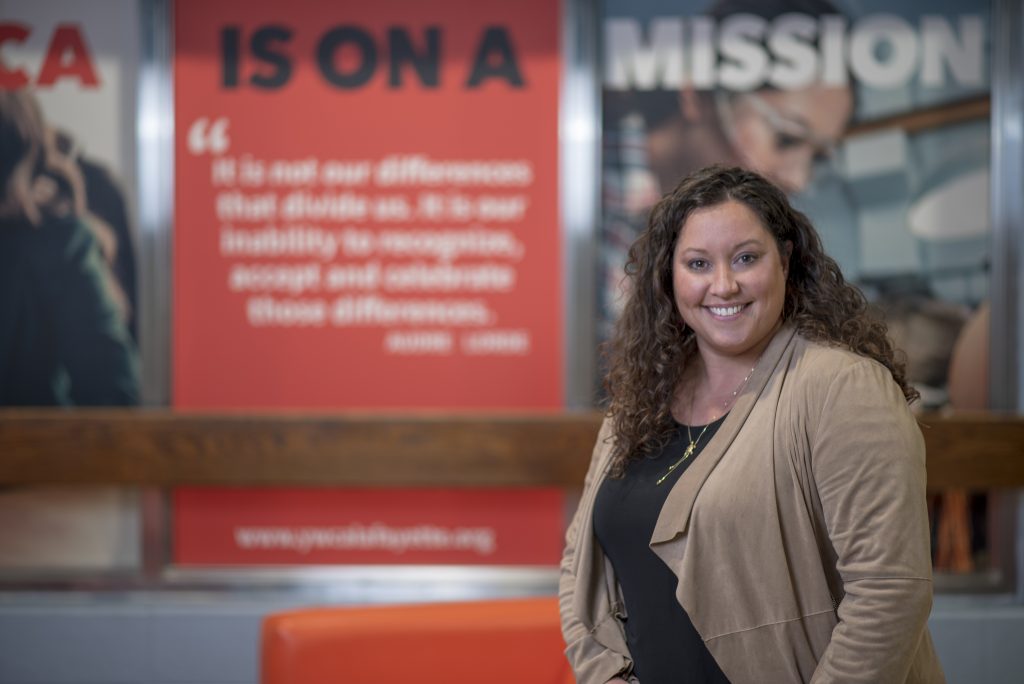
Lindsey Mickler
President and Chief Executive Officer
YWCA Greater Lafayette
Involved in violence prevention work with domestic violence, sexual assault and human trafficking, Mickler is a versatile, highly adaptable, results-oriented professional with proven nonprofit leadership and management skills. During the summer of 2022, Mickler embarked on an eight-week embodied racial justice cohort for white leaders with fellow YWCA CEOs. She has a B.A. in psychology and a Master of Public Management from Indiana University, Kokomo.
How did you become involved with YWCA?
Like many, I have a connection to YWCA. In Kokomo, I attended YWCA as a child and was a swim instructor during college. When I was appointed as the CEO in August of 2021, it felt like an opportunity to continue to serve a mission that I was passionate about — four simple words that are challenging, but necessary: eliminate racism, empower women. I am honored to serve in this capacity and be entrusted with this community treasure.
What are your top three priorities?
• Develop bold initiatives that will allow us to drive our mission forward.
• Tell our story of one YWCA! We are an umbrella agency, with pillar programs that collectively support our mission and meet the needs of the community.
• Embrace collaboration — we know that the lift to effectively serve our mission will require action from both YWCA Greater Lafayette and the community.
What change do you hope to effect during your tenure?
Amidst a pandemic that has resulted in an increase in domestic violence, exposed inequities in access to health care, emphasized necessity for workforce development, and highlighted need for racial and social justice initiatives, our work is more important now than ever.
We will continue to strengthen collaborative opportunities and solidify YWCA Greater Lafayette as the leader in violence prevention efforts and social and racial justice initiatives.
YWCA Greater Lafayette has provided needed services for 92 years, and we will continue to lead the charge towards equality. Together, we shall continue to add to the legacy of YWCA Greater Lafayette. We will continue to foster empowerment in action through our events, our collaborations and our pillar programs that we extend to each of the communities we serve.
YWCA Greater Lafayette will continue to do our work until injustice is rooted out, until institutions are transformed and until the world sees women, girls, and people of color the way we do. Equal. Powerful. Unstoppable.
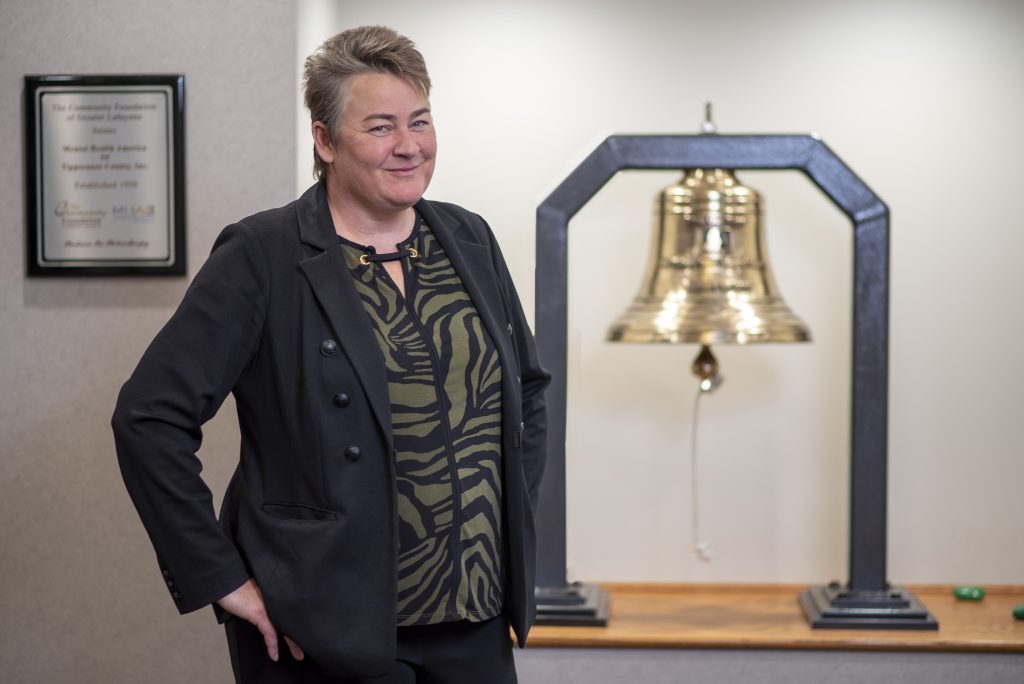
Brandi Christiansen
President and Chief Executive Officer
Mental Health America, Wabash Vally Region
Christiansen is a U.S. Navy Veteran with an associates degree in law enforcement and B.A. in anthropology from the University of Iowa. She is a former semi-pro women’s football player and is the vice chair of the Indiana National Guard Relief Fund and a Certified Suicide Prevention Instructor (QPR Gate Keeper).
How did you become involved with this organization?
I was previously the executive director of Mental Health America-North Central Indiana based in Kokomo when I learned of this open position and was encouraged to apply. I did, and we merged with my old region last January.
What are your top three priorities?
• Staff/volunteer development
• Sustainable funding
• Innovative response to a mental health crisis.
Without the first two priorities, we remain in reactionary mode and the crisis grows.
What change do you hope to effect during your tenure?
I hope to offer systemic opportunities for individuals and their families struggling with mental health and addiction who have not been successful in the current mental health care and legal systems to get relief and empowerment so that they do not pass the trauma on to the next generations. I hope to take a tactical approach to youth mental health challenges and normalize early treatment and prevention of mental health and substance use disorders. I hope to challenge stigma in all its forms.

Katy O’Malley Bunder (right) passes the torch to Kier Crites Muller (left)
President and Chief Executive Officer
Food Finders Food Bank
(Note: Bunder announced her retirement as this issue of Greater Lafayette Magazine went to press. Long-time Food Finders staff member Kier Crites Muller was named the new CEO upon Bunder’s retirement.)
Bunder joined Food Finders Food Bank in 2008 as the executive director. Under her direction, Food Finders increased food distribution from 2.5 million pounds to 14 million pounds, expanded the Backpack Program and added the Mobile Pantry Program. In 2014, Food Finders conducted a capital campaign that enabled the food bank to move into two newly renovated buildings. The Food Resource and Education Center teaches life skills and nutrition classes and offers resource coordination for food insecure households. In 2020, in response to increased demand resulting from the COVID-19 pandemic, Food Finders opened a grocery store. The Fresh Market, open five days a week, distributes high-quality nutritious food to low-income households and served more than 17,500 individual households in 2020.
Before joining Food Finders, Bunder worked for Purdue University from 1985 until 2008 and founded the nonprofit organization New Chauncey Housing, Inc.
Originally, from Arkansas, Bunder earned her bachelor’s degree at Randolph-Macon Woman’s College. She completed her master’s degree at the University of Virginia. Bunder and her husband, Peter, moved to West Lafayette in 1985. They have two grown daughters and three grandchildren.
How did you become involved with this organization?
In 2008 Food Finders conducted a search to find a new executive director, and I applied. I had previously founded a nonprofit and wanted to return to nonprofit work.
What are your top three priorities?
• Providing food to those who are food insecure.
• Running programs that help people overcome the root cause of hunger: poverty
• Making sure everyone in our community knows that people around us are hungry and those who can help donate or volunteer.
What change do you hope to effect during your tenure?
I am retiring in December 2022 and I have increased food distribution, added programs and moved Food Finders from an industrial park on the edge of Lafayette to the center of the city. It is much easier for those who need help to find it and easier for volunteers to help the food bank.

Laurie Earnst
Executive Director
Tippecanoe County Senior Services
Earnst is the executive director of Tippecanoe Senior Services and has been in this position for three years. Her past work includes being the executive director of a family homeless shelter and program. She also has experience in social work, elementary education and early intervention for young children with special needs. Earnst has a bachelor’s degree in education from the University of North Carolina Greensboro and a Certificate in Nonprofit Leadership from Indiana University. She is originally from Elkhart and has lived in the Greater Lafayette area for 14 years. She is married and has five adult children and one granddaughter.
How did you become involved with this organization?
I became involved in this organization after a colleague suggested that I apply. I enjoy working with the senior population and being able to provide the services and resources they need to live a healthy and happy life.
What are your top three priorities?
• Raise more awareness of our agency
• Raise awareness of the services we provide to seniors
• Strive to continue to bring in the programming and services that will benefit the seniors we serve.
What change do you hope to effect during your tenure?
I hope to change the way our society regards the senior population by promoting value, respect and honor within my organization and within our community.
————-
Tippecanoe Senior Services operates Tippecanoe Senior Center, Meals on Wheels Greater Lafayette and SHARP (Senior Home Assistance Repair Program)

Jen Edwards
Executive Director
Junior Achievement serving Greater Lafayette
A graduate of Indiana University with a bachelor’s degree in communications, Edwards has a background in supporting local businesses, as well as local and national nonprofits.
She also currently serves as a Greater Lafayette Connector, on the Leadership Lafayette Selection Committee, Community Foundation of Greater Lafayette 100+ Women Who Care Steering Committee and President of the Jefferson High School Golden Broncho Club.
A connector at heart, Edwards’ leadership skills and community involvement has taught her that investing in people, organizations and workplaces helps keep our communities strong and vibrant. It is about empowering people by providing opportunities to grow, change and give back.
How did you become involved with this organization?
My love for education and workforce development come together at Junior Achievement. Serving my community through preparing students to succeed in a global economy is important to me. I truly believe our mission is truly making a difference in Greater Lafayette.
What are your top three priorities?
• Always be learning and growing as an individual
• Serve my community well
• Have fun
What change do you hope to effect during your tenure?
I hope to create a culture where staff feels appreciated and wants to invest in the organization. Additionally, I want to leave a legacy for the organization, that the work being done today will be appreciated in the years to come.
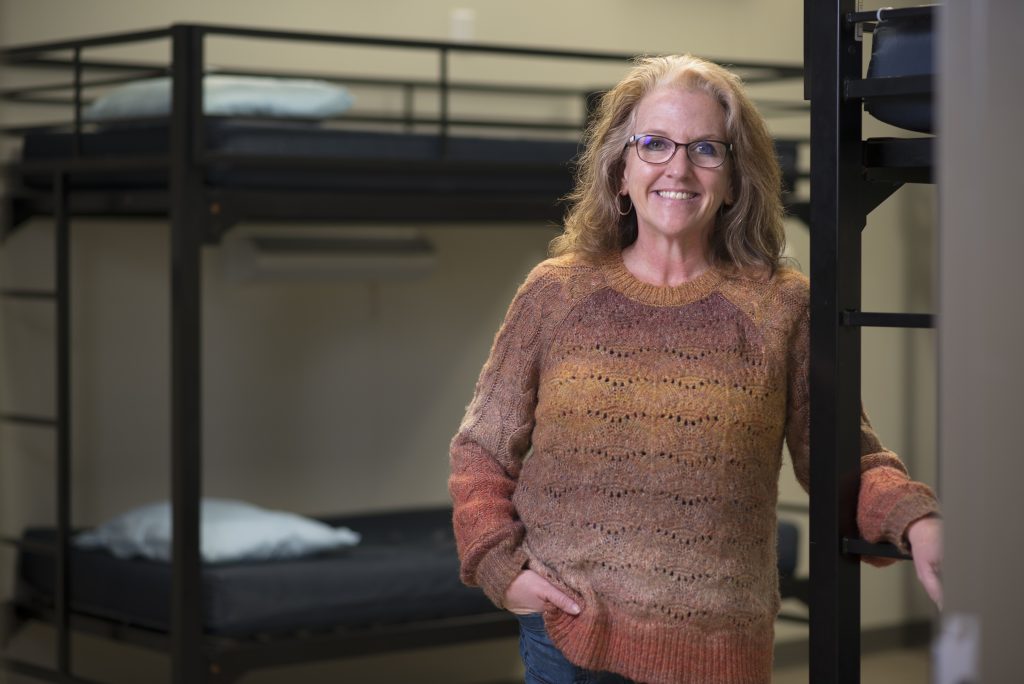
Jennifer Layton
President and Chief Executive Officer
Lafayette Transitional Housing Center
Layton has worked for LTHC Homeless Services, formally Lafayette Transitional Housing Center, for the past 28 years. She began her tenure after graduating from Ball State University with a B.S. in public relations. She started as a case manager at LTHC thinking that the job would be relatively simple — to help homeless families. But what began as a job has turned into a lifelong passion.
For the last 22 years, Layton has been the executive director, now President/CEO, of LTHC. She has overseen significant growth in the ongoing effort to meet the changing needs of the homeless population of our community. During this time, the agency has grown from one program to seven, from serving nine families to helping over 250 families in 2021. Such programs include: Coordinated Entry, Day Resource Center, Night Shelter, Interim Housing, Medical Respite, Permanent Supportive Housing, Rapid Re-Housing and Supportive Services for Veteran Families.
How did you become involved with this organization?
In 1994, when I started my career with this organization, I thought it would be easy for me to connect homeless families to housing options. I was from this area and could help navigate housing solutions. What I learned, very quickly, was there was a lack of affordable housing options for single-parent households. The families who needed help also needed employment, child care, transportation assistance and more. There were many barriers associated that I did not understand.
What are your top three priorities?
• End homelessness for individuals, families and veterans.
• Educate the public about people who are experiencing homelessness and how they need a community response to help.
• Build additional housing units and collaborate with additional partners to ensure housing success.
What change do you hope to effect during your tenure?
I want to be part of the advocacy work across the state of Indiana to provide housing to all Hoosiers who are experiencing homelessness. This is not an issue just in Tippecanoe County. There is much work to be done.

Stephanie Long
President and Chief Executive Officer
North Central Health Services, Inc. (NCHS)
Long has 20 years of health care administration experience in various leadership roles. Before joining NCHS in 2015, she was the chief executive officer of Indiana University Health White Memorial Hospital. Long has a B.S. in nursing and a master’s in business administration. Long is a fellow of the American College of Health Care Executives.
How did you become involved with the organization?
Long joined the organization in 2015 as the president and CEO. NCHS owns and operates River Bend Hospital, an inpatient psychiatric hospital. NCHS also provides grants for eligible nonprofit organizations in an eight-county region.
What are your top three priorities?
The top three priorities of NCHS are based on the Community Health Needs Assessment, completed for our eight-county region every three years. The 2021 Community Health Needs Assessment identified the following critical health needs as our priorities:
• Mental/behavioral health and adverse childhood experiences
• Substance abuse
• Our community’s overall health and well-being
What change do you hope to effect during your tenure?
We are fortunate to live in a community where individuals truly care and are willing to work together for the greater good. I hope to remove barriers and support the mental health needs of our community, including access to care, social services and prevention programs for all ages. In addition to providing mental health services at River Bend Hospital, the goal of NCHS is to provide funding partnerships to expand and strengthen nonprofit organizations that improve health outcomes and develop healthy communities.

Leslie Martin Conwell
Executive Director
Tippecanoe County Historical Association (TCHS)
Conwell is an anthropologist and historian who did undergraduate work at Purdue University and graduate work at Indiana University. She has been employed in various capacities with the Tippecanoe County Historical Association for 40 years.
How did you become involved with this organization?
After going to my first Feast of the Hunters’ Moon in 1975, the Feast sparked the development of a strong love for the history and archaeology of Fort Ouiatenon. The historical association hired me originally as a tour guide and gift shop manager while I was in college, and after graduation, they hired me as a museum professional. I was very fortunate to work with people there who recognized my interest and encouraged me all through these years to be the best I could be in the museum field. I’ve had incredible mentors.
What are your top three priorities?
• TCHA is dedicated to collecting, preserving and
sharing Tippecanoe County’s diverse history.
• A major priority is to keep the Feast financially viable, inclusive and relevant, so that it continues to
contribute to the quality of life in the community.
• Ensuring TCHA’s fiscal viability through grants,
community connections and interpersonal relationships.
What change do you hope to effect during your tenure?
My time as executive director has been all about ensuring the historical association’s survival and viability. I came on board in June of 2020 — the height of the COVID pandemic. I worked in tandem with the board, staff, membership, sponsors, granting agencies, donors and volunteers to ensure the survival of the Tippecanoe County Historical Association through the significant challenges posed by the COVID pandemic and the subsequent cancellation of the 2020 Feast of the Hunters’ Moon. TCHA met its mission during the most challenging time the association has ever endured, and we accomplished much toward ensuring the future financial security of TCHA. I will be retiring from the executive director position in the very near future, and it has been an honor to serve TCHA and my community. ★
—–
The pot Conwell is holding was found in the area of the archaeological site of Fort Ouiatenon It is constructed of copper, and is identified by experts as a cooking pot dating from the second quarter of the 18th century (roughly 1725-1750). The construction and style is identified as French.


